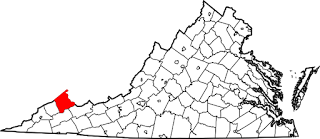Chris Spencer, the only African-American student at Hurley High School in southwestern Virginia, proudly displays the Confederate flag tattoo on his right arm, telling Erik Brady of USA Today, "It doesn’t mean racism to me. I just look at it as a flag. It’s our mascot. It just means our school.” At the Appalachian school of 200 students, the Confederate flag is highly visible, on the front doors, in the main office, on athletic uniforms and even on athletic equipment. (USA Today photo by Michael Shroyer: Chris Spencer and his Confederate flag tattoo)
While in many areas in the South politicians and activists have called for removal of the flags in light of the June murders of nine African Americans and the arrest of a white suspect with ties to hate crime, the Confederate flag is a way of life 453 miles from Charleston in the small town of Hurley. High school principal Pam Tester told Brady, "It means heritage, not hate. You won’t find a single person in Hurley who thinks different. That’s not what it means here. Never. Virginia is for lovers.”
Brady writes, "That’s the party line in Hurley, a tiny coal mining community tucked into the southwest corner of Virginia, south of Kentucky and west of West
Virginia, where longtime citizens say they just want to be left alone to rally around a symbol that’s been with them for as long as they can remember."
Hurley, an unincorporated community in Buchanan County, one of Virginia’s poorest, "was founded in 1858, just before the Civil War, and according to the 2010 census had a population of a little more than 24,000, roughly 97 percent white," Brady writes. Locals blame President Obama and Democrats for the loss of coal jobs. Darwin Bailey, who is unemployed, told Brady,
“The liberals and the tree huggers want to shut down the mines. And next thing they’ll want to shut down our flag, too.” (Family Search map: Hurley)
The football field is named for the school's first coach, Arthur M. Ratliff, Jr., whose ancestors fought for the South in the Civil War, Brady writes. A 1982 Washington Post piece on Ratliff "describes a man who hated Franklin Roosevelt for eroding initiative, Earl Warren for destroying justice, Elvis for ruining music and government for over-regulation." Ratliff told the Post, “I’m a general on the battlefield of life. Why, hell, God created me to win.”
Ratliff, who died in 2007, left behind a foundation with net assets worth more than $24 million, Brady writes. Sam Varney, who played on the first teams, said "Ratliff thought that flag 'denoted courage, valor and states’ rights.' It was not adopted really for anything connected with slavery or hatred or anything that those who are being vocal about it say. To change it because someone else doesn’t like it goes against the grain of mountain independence.” (Read more)


No comments:
Post a Comment